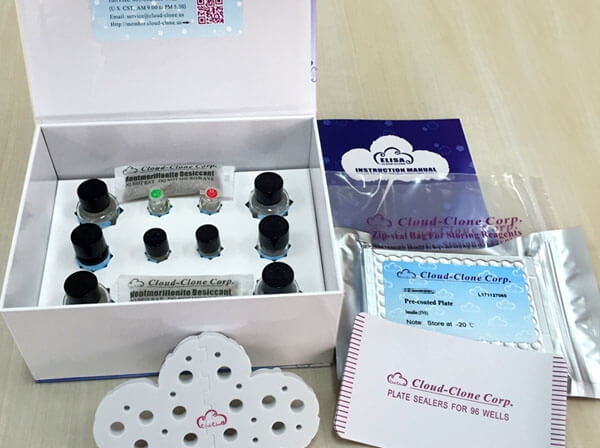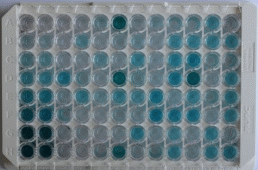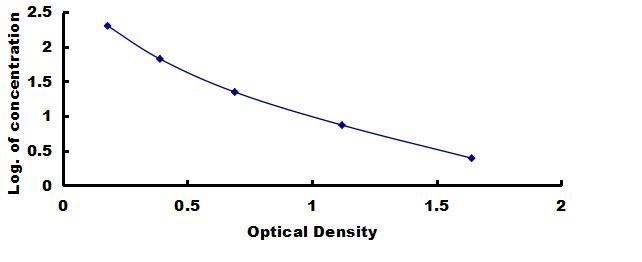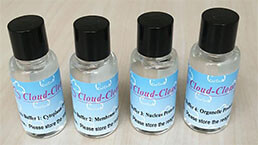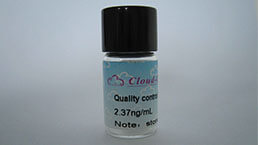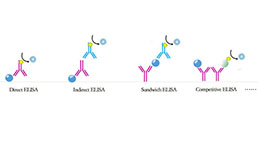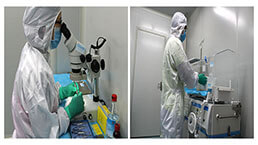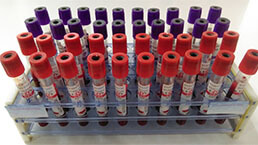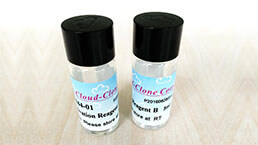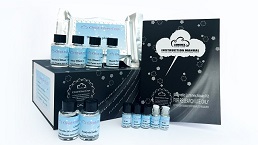ELISA Kit for Osteoclast Associated Receptor (OSCAR) 

PIGR3; Osteoclast Associated,Immunoglobulin-Like Receptor; Polymeric immunoglobulin receptor 3; Poly-Ig receptor 3
Overview
Properties
- Product No.CEC695Hu
- Organism SpeciesHomo sapiens (Human) Same name, Different species.
- ApplicationsEnzyme-linked immunosorbent assay for Antigen Detection.
Research use only - DownloadInstruction Manual
- CategoryMetabolic pathway
Sign into your account
Share a new citation as an author
Upload your experimental result
Review

Contact us
Please fill in the blank.
Recovery
Matrices listed below were spiked with certain level of recombinant Osteoclast Associated Receptor (OSCAR) and the recovery rates were calculated by comparing the measured value to the expected amount of Osteoclast Associated Receptor (OSCAR) in samples.
| Matrix | Recovery range (%) | Average(%) |
| serum(n=5) | 90-97 | 93 |
| EDTA plasma(n=5) | 79-102 | 88 |
| heparin plasma(n=5) | 84-94 | 90 |
Precision
Intra-assay Precision (Precision within an assay): 3 samples with low, middle and high level Osteoclast Associated Receptor (OSCAR) were tested 20 times on one plate, respectively.
Inter-assay Precision (Precision between assays): 3 samples with low, middle and high level Osteoclast Associated Receptor (OSCAR) were tested on 3 different plates, 8 replicates in each plate.
CV(%) = SD/meanX100
Intra-Assay: CV<10%
Inter-Assay: CV<12%
Linearity
The linearity of the kit was assayed by testing samples spiked with appropriate concentration of Osteoclast Associated Receptor (OSCAR) and their serial dilutions. The results were demonstrated by the percentage of calculated concentration to the expected.
| Sample | 1:2 | 1:4 | 1:8 | 1:16 |
| serum(n=5) | 98-105% | 83-99% | 97-105% | 95-103% |
| EDTA plasma(n=5) | 84-97% | 99-105% | 99-105% | 98-105% |
| heparin plasma(n=5) | 78-97% | 96-104% | 96-105% | 96-103% |
Stability
The stability of kit is determined by the loss rate of activity. The loss rate of this kit is less than 5% within the expiration date under appropriate storage condition.
To minimize extra influence on the performance, operation procedures and lab conditions, especially room temperature, air humidity, incubator temperature should be strictly controlled. It is also strongly suggested that the whole assay is performed by the same operator from the beginning to the end.
Reagents and materials provided
| Reagents | Quantity | Reagents | Quantity |
| Pre-coated, ready to use 96-well strip plate | 1 | Plate sealer for 96 wells | 4 |
| Standard | 2 | Standard Diluent | 1×20mL |
| Detection Reagent A | 1×120µL | Assay Diluent A | 1×12mL |
| Detection Reagent B | 1×120µL | Assay Diluent B | 1×12mL |
| TMB Substrate | 1×9mL | Stop Solution | 1×6mL |
| Wash Buffer (30 × concentrate) | 1×20mL | Instruction manual | 1 |
Assay procedure summary
1. Prepare all reagents, samples and standards;
2. Add 50µL standard or sample to each well.
And then add 50µL prepared Detection Reagent A immediately.
Shake and mix. Incubate 1 hour at 37°C;
3. Aspirate and wash 3 times;
4. Add 100µL prepared Detection Reagent B. Incubate 30 minutes at 37°C;
5. Aspirate and wash 5 times;
6. Add 90µL Substrate Solution. Incubate 10-20 minutes at 37°C;
7. Add 50µL Stop Solution. Read at 450 nm immediately.

Test principle
This assay employs the competitive inhibition enzyme immunoassay technique. An antibody specific to OSCAR has been pre-coated onto a microplate. A competitive inhibition reaction is launched between biotin labeled OSCAR and unlabeled OSCAR (Standards or samples) with the pre-coated antibody specific to OSCAR. After incubation the unbound conjugate is washed off. Next, avidin conjugated to Horseradish Peroxidase (HRP) is added to each microplate well and incubated. The amount of bound HRP conjugate is reverse proportional to the concentration of OSCAR in the sample. After addition of the substrate solution, the intensity of color developed is reverse proportional to the concentration of OSCAR in the sample.
Giveaways
Increment services
Citations
- Quantitative proteomics reveals novel functions of osteoclast-associated receptor in STAT signaling and cell adhesion in human endothelial cellsPubMed: 22985931
- The immunoreceptor tyrosine-based activation motif (ITAM) -related factors are increased in synovial tissue and vasculature of rheumatoid arthritic jointsPubMed: 23146195
- Osteoclast-Associated Receptor (OSCAR) Distribution in the Synovial Tissues of Patients with Active RA and TNF-α and RANKL Regulation of Expression by Osteoclasts In Vitroarticle:10.1007
- Development of a novel polysaccharide-based iron oxide nanoparticle to prevent iron accumulation-related osteoporosis by scavenging reactive oxygen …Pubmed: 33049237




